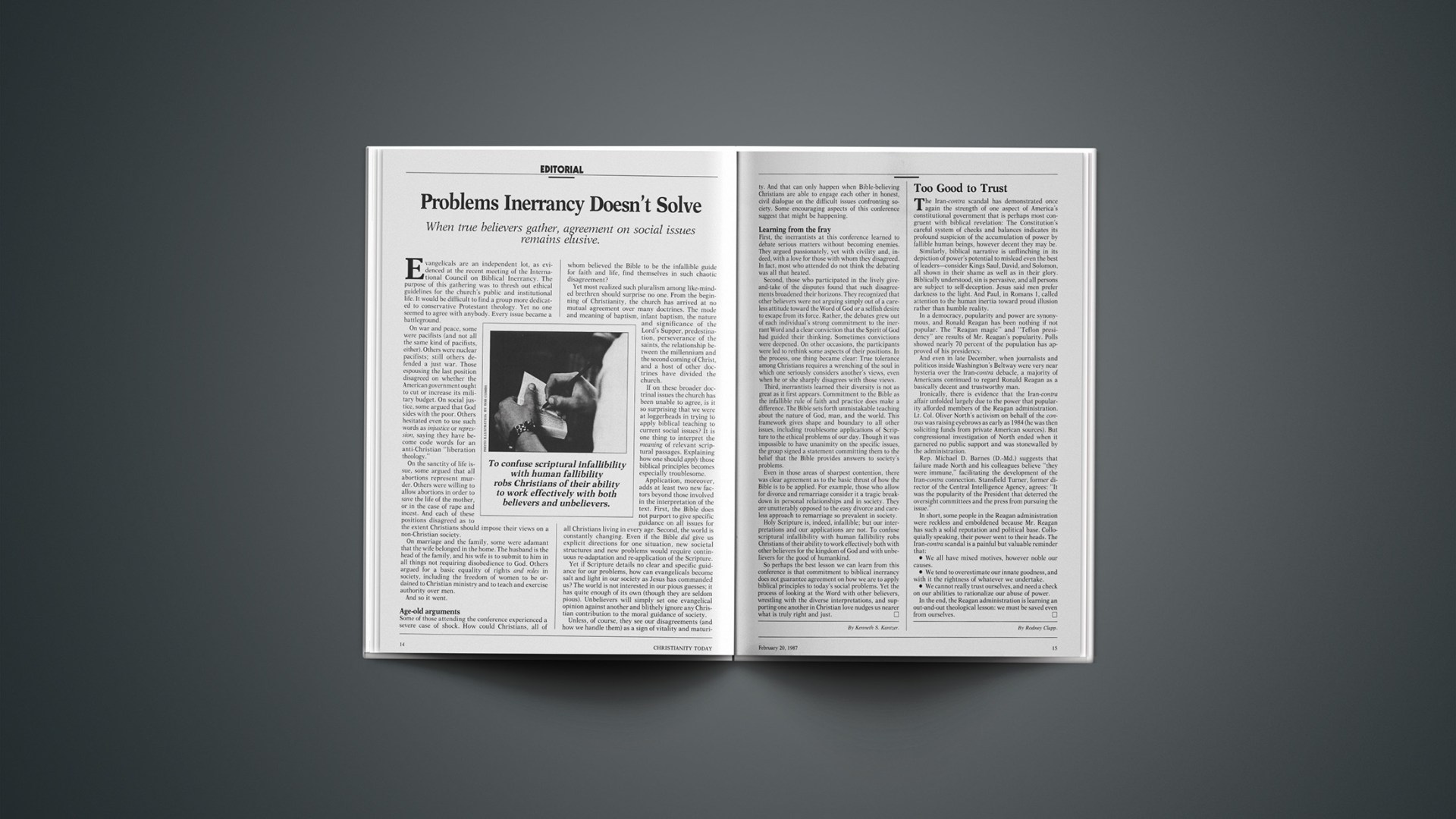The Iran-contra scandal has demonstrated once again the strength of one aspect of America’s constitutional government that is perhaps most congruent with biblical revelation: The Constitution’s careful system of checks and balances indicates its profound suspicion of the accumulation of power by fallible human beings, however decent they may be.
Similarly, biblical narrative is unflinching in its depiction of power’s potential to mislead even the best of leaders—consider Kings Saul, David, and Solomon, all shown in their shame as well as in their glory. Biblically understood, sin is pervasive, and all persons are subject to self-deception. Jesus said men prefer darkness to the light. And Paul, in Romans 1, called attention to the human inertia toward proud illusion rather than humble reality.
In a democracy, popularity and power are synonymous, and Ronald Reagan has been nothing if not popular. The “Reagan magic” and “Teflon presidency” are results of Mr. Reagan’s popularity. Polls showed nearly 70 percent of the population has approved of his presidency.
And even in late December, when journalists and politicos inside Washington’s Beltway were very near hysteria over the Iran-contra debacle, a majority of Americans continued to regard Ronald Reagan as a basically decent and trustworthy man.
Ironically, there is evidence that the Iran-contra affair unfolded largely due to the power that popularity afforded members of the Reagan administration. Lt. Col. Oliver North’s activism on behalf of the contras was raising eyebrows as early as 1984 (he was then soliciting funds from private American sources). But congressional investigation of North ended when it garnered no public support and was stonewalled by the administration.
Rep. Michael D. Barnes (D. Md.) suggests that failure made North and his colleagues believe “they were immune,” facilitating the development of the Iran-contra connection. Stansfield Turner, former director of the Central Intelligence Agency, agrees: “It was the popularity of the President that deterred the oversight committees and the press from pursuing the issue.”
In short, some people in the Reagan administration were reckless and emboldened because Mr. Reagan has such a solid reputation and political base. Colloquially speaking, their power went to their heads. The Iran-contra scandal is a painful but valuable reminder that:
- We all have mixed motives, however noble our causes.
- We tend to overestimate our innate goodness, and with it the rightness of whatever we undertake.
- We cannot really trust ourselves, and need a check on our abilities to rationalize our abuse of power.
In the end, the Reagan administration is learning an out-and-out theological lesson: we must be saved even from ourselves.
By Rodney Clapp.










